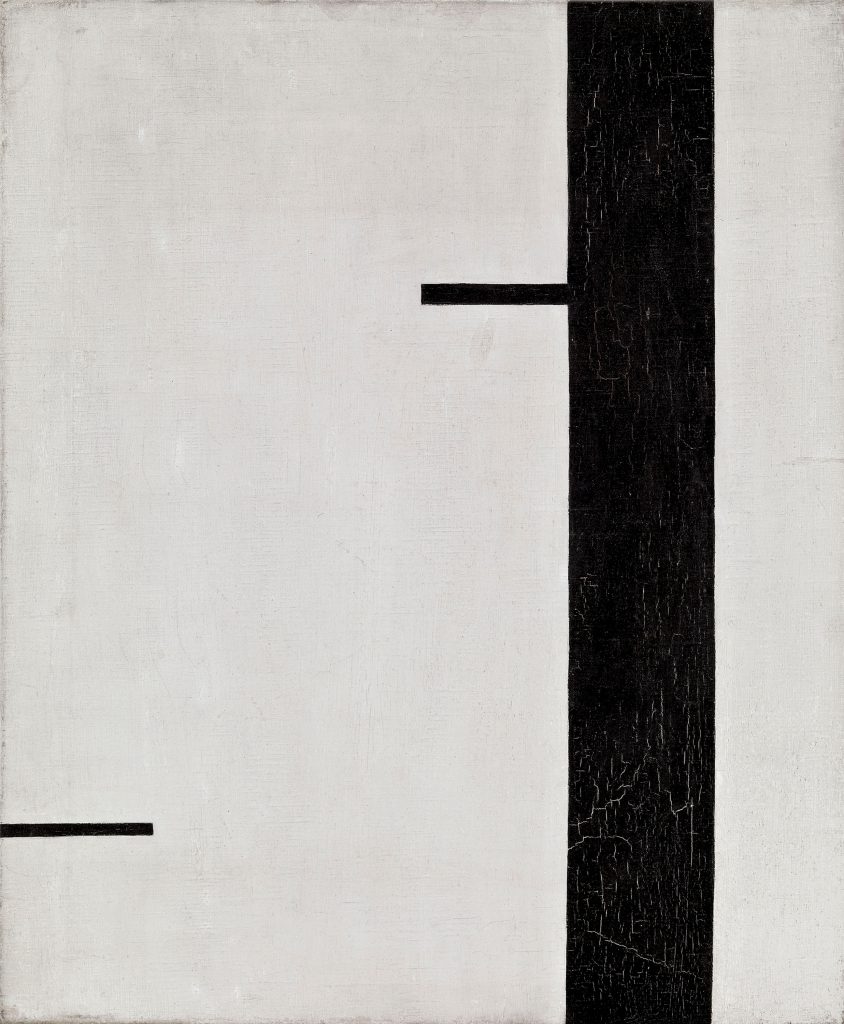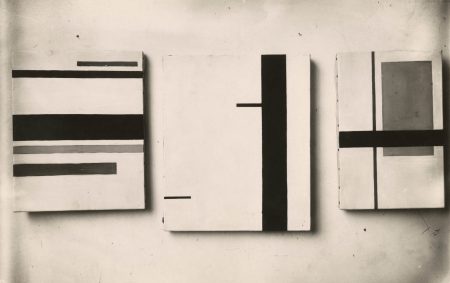


National Gallery of Art, Washington, D.C. Alexander Calder: 1898–1976. 29 March–12 July 1998.
Solo ExhibitionMusée National d’Art Moderne, Centre Georges Pompidou, Paris. Alexander Calder: les années parisiennes 1926–1933. 18 March–20 July 2009. Originated from the Whitney Museum of American Art, New York.
Solo ExhibitionFondation Beyeler, Riehen/Basel. Alexander Calder & Fischli/Weiss. 29 May–4 September 2016.
Group ExhibitionPace Gallery, New York. Calder: Small Sphere and Heavy Sphere. 14 September–26 October 2019.
Solo ExhibitionAccompanied by another American artist, William “Binks” Einstein, Calder visits Mondrian’s studio at 26 rue du Départ. Already familiar with Mondrian’s geometric abstractions, Calder is deeply impressed by the studio environment. It was a very
exciting room. Light came in from the left and from the right, and on the solid wall between the windows there were experimental stunts with colored rectangles of cardboard tacked on. Even the victrola, which had been some muddy color, was painted red. I suggested to Mondrian that perhaps it would be fun to make these rectangles oscillate. And he, with a very serious countenance, said: “No, it is not necessary, my painting is already very fast.” This one visit gave me a shock that started things. Though I had heard the word “modern” before, I did not consciously know or feel the term “abstract.” So now, at thirty-two, I wanted to paint and work in the abstract. And for two weeks or so, I painted very modest abstractions. At the end of this, I reverted to plastic work which was still abstract.
Following a visit in October of 1930 to Piet Mondrian’s studio, where he was impressed by the environmental installation, Calder made his first wholly abstract compositions and invented the kinetic sculpture now known as the mobile. Coined for these works by Marcel Duchamp in 1931, the word “mobile” refers to both “motion” and “motive” in French. He also created stationary abstract works that Jean Arp dubbed “stabiles.”